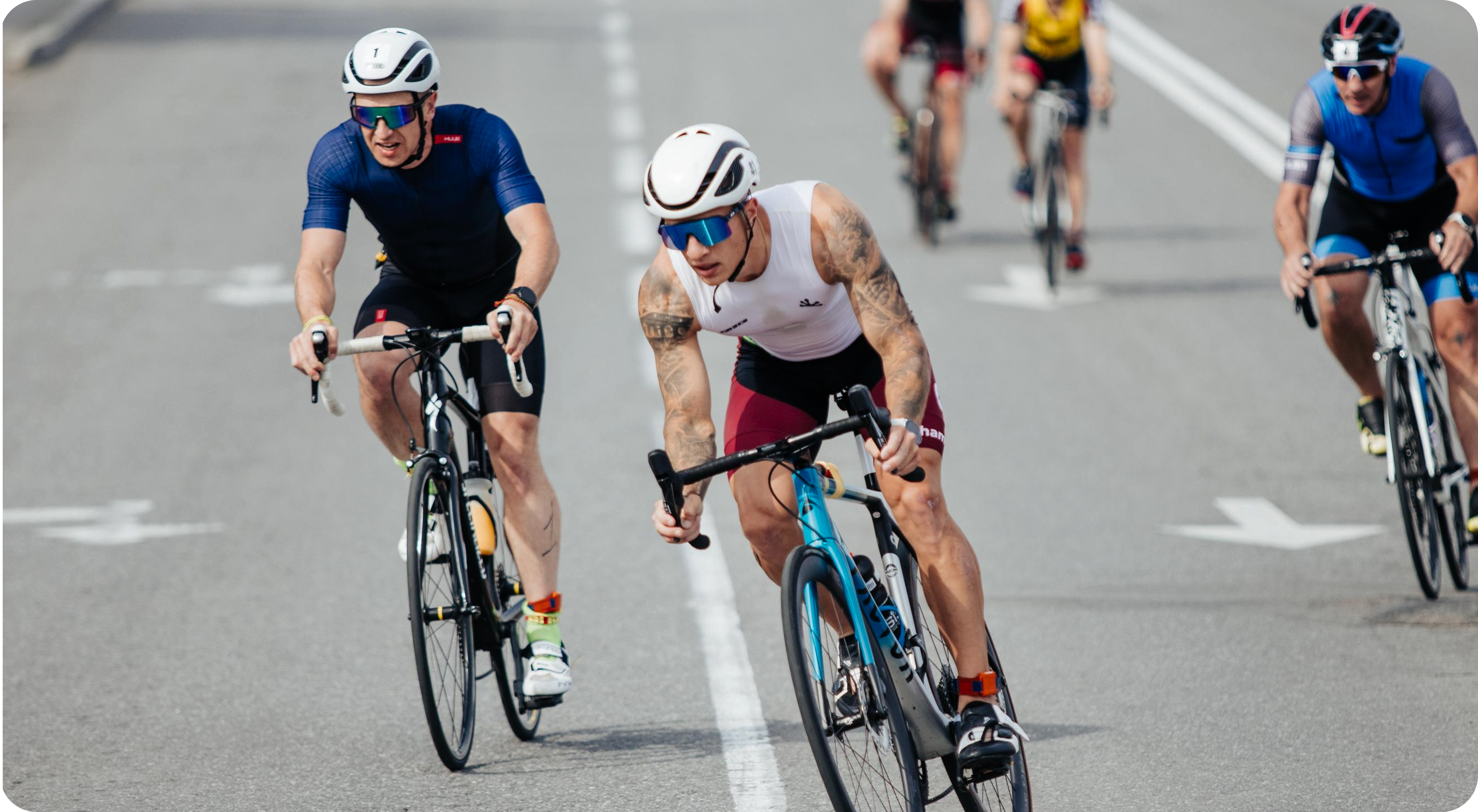Ever wonder how your race times compare to the world’s fastest triathletes?
With our Triathlon Results Comparison Tool, you can see exactly where you stand against elite-level benchmarks and world records. Whether you’ve just completed your first sprint distance or you’re chasing a new Ironman PR, this tool gives you context and motivation.
You might be wondering, Why do I even need to compare my race results with the top ones?
Well, here is why it might be helpful:
Use world records as a guide, not a standard. Every athlete starts somewhere. Focus on beating your own best!
Just enter your race times and the distance you completed. The tool instantly compares your performance with historical world records and top finisher times in your age group or category.
Triathlon times can look very different depending on the race distance. Short races that can last less than an hour are much faster than full Ironman triathlon events. And of course, professional athletes finish much quicker than the average triathlete.
Looking at average times for your race distance (like super sprint triathlon, sprint, Olympic distance triathlon, or Ironman) can help you set realistic goals for your next event.
But remember, race results don’t just depend on your fitness. Things like hills on the course, weather on race day, and your experience level all play a role.
Reviewing your race results allows you to spot what went well and what needs work. Maybe your swim was strong, but your bike pace dropped. That info helps you improve your training and race-day strategy.
Also, every course is different. A flat bike route is very different from one with steep climbs, so it’s important to adjust your plan based on the race conditions.
Check out some of the most impressive triathlon performances from top athletes around the world. These results show what’s possible with dedication, smart training, and a never-give-up attitude.

World records are pretty impressive, but what about average finish times? Let's see.
Distance: 400m swim, 10km bike, 2.5km run
Average Finish Time: Approximately 35 minutes for age-group athletes.
Distance: 750m swim, 20km bike, 5km run
Average Finish Time: Around 1 hour 30 minutes.
Distance: 1.5km swim, 40km bike, 10km run
Average Finish Time: Approximately 2 hours 35 minutes.
Distance: 1.9km swim, 90km bike, 21.1km run
Average Finish Time: Between 6 hours 20 minutes and 6 hours 50 minutes.
Distance: 3.8km swim, 180km bike, 42.2km run
Average Finish Time: Around 13 hours for men and 14 hours for women.
It's important to note that times can vary based on factors like course difficulty, weather conditions, and individual fitness levels. For instance, a hilly course or strong winds can increase finish times. It's important to consider these variables when setting your personal goals.
Look at your race results next to world records and average times to figure out how to train smarter and get faster.
Check which part of the race you’re slower at: swim, bike, or run. If your swim is lagging, spend more time working on your stroke and building endurance. If the bike or run feels tough, add some focused workouts to boost your strength and speed there.
Look at your splits and see if you went out too hard or held back too much. Maybe you got tired too soon on the bike or ran out of steam at the end. Tweaking your pacing will help you finish strong and feel better during the race.
If you notice energy crashes during certain parts of the race, that’s a clue to try different nutrition strategies. Maybe you need to eat or drink more often, or try new gels that work better for you.
Knowing where you are now helps you set goals that are just right, not too easy, not too crazy. It keeps you motivated and on track for steady improvement.
Use your race results to guide your training, so you focus on what you need and enjoy every triathlon more.

Triathlon comes in many distances, from quick super sprint distance to middle distance, to the full Ironman distance, so picking the right race and planning your strategy is really important.
Knowing average finish times and how you perform helps you set realistic goals and create a training plan that fits your needs.
The sport keeps changing, with new types of races like the 100km PTO events giving athletes fresh challenges and chances to grow.
As triathlon grows, having a solid training plan and preparing for the specific demands of each race, whether a short sprint or a long Ironman, is key.
With hard work and commitment, you can reach your goals and improve your performance, whether that means finishing a sprint triathlon in under an hour or completing a full Ironman on time.